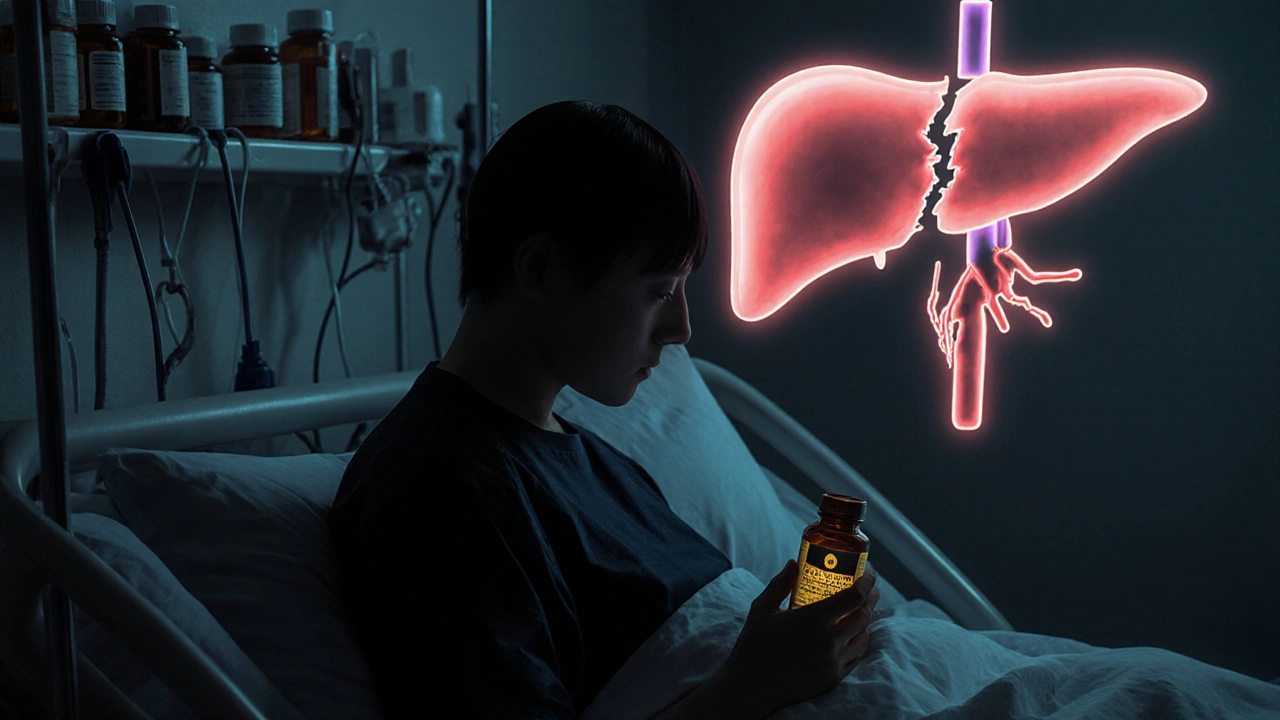
Goldenseal Medication Interaction Checker
Check Your Medication
Goldenseal affects liver enzymes that process 75% of prescription drugs. Enter your medication name to see if it's affected.
Goldenseal is one of those supplements that sounds harmless-maybe even helpful. You see it on shelves labeled as an immune booster, a natural cold remedy, or a sinus clearer. But here’s the truth most labels won’t tell you: if you’re taking any prescription medication, goldenseal could be quietly messing with your liver’s ability to process it. And that’s not a small risk. It’s a serious one.
What Goldenseal Actually Does in Your Body
Goldenseal comes from the root of a plant called Hydrastis canadensis, native to eastern North America. For over a century, people have used it for infections, inflammation, and digestive problems. Today, it’s sold as a supplement, mostly for colds or immune support. But the science behind those claims? Weak. The FDA hasn’t approved goldenseal for any medical use because there’s not enough proof it works.
What it does have, though, are powerful chemicals-mainly berberine and hydrastine. These alkaloids are what make goldenseal biologically active. And that’s where the trouble starts. These compounds don’t just act on your throat or nose. They go straight to your liver and interfere with a group of enzymes called cytochrome P450 (CYP). These enzymes are responsible for breaking down about 75% of all prescription drugs. Think of them as your body’s cleanup crew for medications.
Goldenseal doesn’t just slow down one enzyme. It hits five of them hard: CYP3A4, CYP2D6, CYP2C9, CYP1A2, and CYP2E1. That’s unusual. Most herbs affect one or two. Goldenseal? It’s a multi-target blocker. A 2011 NIH study found it reduced CYP2E1 activity by nearly 80% in animal models. CYP3A4, which handles half of all medications, dropped by almost 50%. That means drugs that rely on these enzymes to be broken down stick around longer in your bloodstream. And that can turn a safe dose into a dangerous one.
Which Medications Are at Risk?
If you’re on any of these, goldenseal is a hard no:
- Statins like simvastatin or atorvastatin-used for cholesterol. Goldenseal can cause muscle damage or liver stress by letting too much of the drug build up.
- Blood pressure meds like lisinopril or metoprolol. Users have reported fainting, dizziness, and dangerously low blood pressure after combining them with goldenseal.
- Antidepressants like fluoxetine or sertraline. These are metabolized by CYP2D6, which goldenseal blocks. That can lead to serotonin overload or extreme side effects.
- Warfarin, a blood thinner. Goldenseal can increase INR levels by 1.5 to 2.0 points, raising your risk of bleeding.
- Immunosuppressants like cyclosporine or tacrolimus. After goldenseal use, drug levels can spike 30-50%, increasing the chance of kidney damage or infection.
- Diabetes drugs like metformin. One case report showed goldenseal lowered metformin levels by 25%, causing blood sugar to spiral out of control.
- Benzodiazepines like midazolam or triazolam. These sedatives can become too strong, leading to excessive drowsiness or breathing problems.
Even acetaminophen (Tylenol) is affected. Goldenseal’s inhibition of CYP2E1 can alter how your body handles this common pain reliever, potentially increasing liver toxicity risk.
Why This Isn’t Just a Theoretical Risk
This isn’t just lab data. Real people are getting hurt.
In early 2023, a Reddit user named ‘HypertensionWarrior’ posted about collapsing after taking goldenseal with lisinopril. Their blood pressure dropped to 85/50. They ended up in the ER. That’s not rare. MedicineNet’s patient reviews show 28% of negative experiences with goldenseal involved prescription drug interactions. The most common? Blood pressure and diabetes meds.
Another case in Pharmacy Times involved a 68-year-old diabetic man. He took goldenseal for a cold. Four weeks later, his HbA1c jumped from 6.8% to 8.2%. His metformin wasn’t working anymore. The goldenseal had interfered with how his body absorbed the drug.
And it’s not just about too much drug in the system. Sometimes, it’s too little. Goldenseal also blocks P-glycoprotein, a transporter that helps move drugs into and out of cells. That means some medications-like digoxin or cyclosporine-might not get absorbed properly. You think you’re getting the right dose. But your body isn’t absorbing it. The result? Treatment fails.
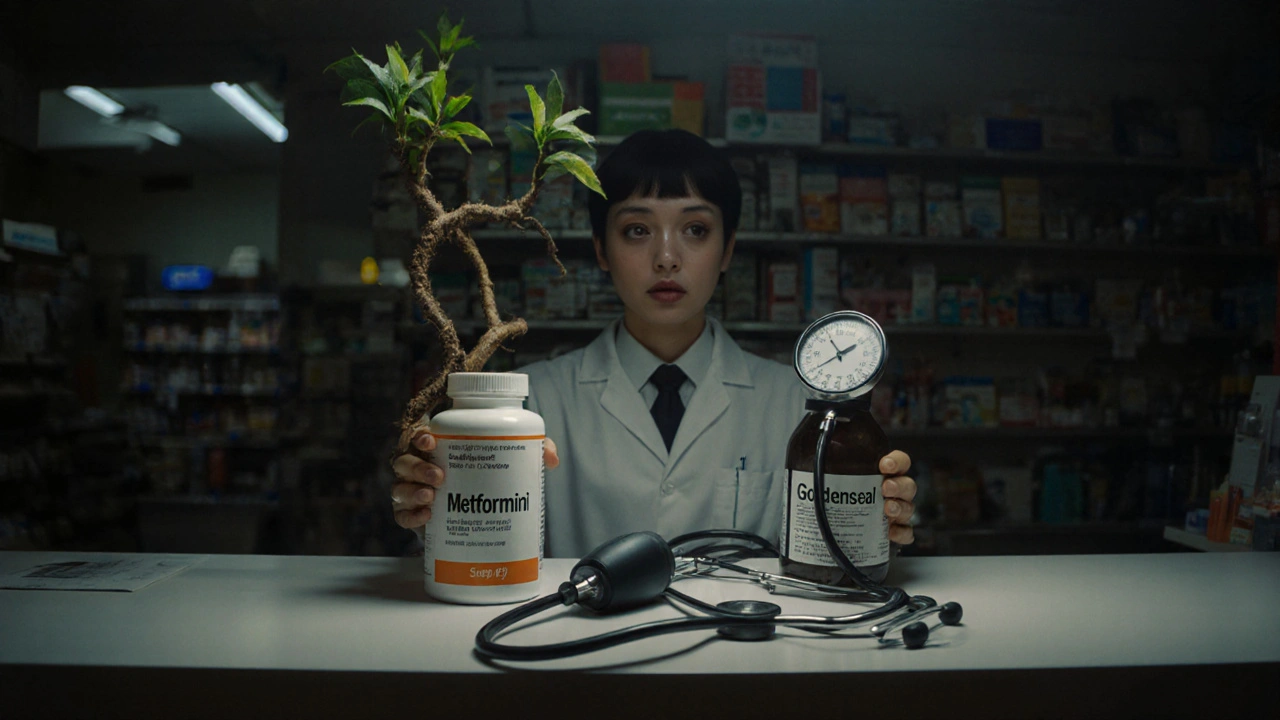
How Goldenseal Compares to Other Herbs
People often think, “If St. John’s Wort is risky, then goldenseal must be similar.” But they’re different.
St. John’s Wort induces enzymes. It speeds up drug breakdown, making meds like birth control or antidepressants less effective. Goldenseal does the opposite-it inhibits them. It slows things down. That means drugs stick around longer, increasing toxicity risk.
Compared to milk thistle (which mainly affects CYP2C9) or grapefruit juice (which targets CYP3A4), goldenseal is broader. A 2020 review ranked it as the third-highest risk herbal supplement for drug interactions-behind only St. John’s Wort and grapefruit juice. But unlike grapefruit juice, which you can avoid by skipping a fruit, goldenseal is in pills, teas, and tinctures. You might not even realize you’re taking it.
And here’s the kicker: goldenseal supplements aren’t standardized. A 2022 USP study found only 38% of products contained berberine within 20% of what the label claimed. So even if you know the dose, you don’t really know what you’re getting. One bottle might have 0.5% berberine. Another might have 8%. That’s a 16-fold difference. No way to predict how it’ll interact with your meds.
What Experts Say
Dr. Edzard Ernst, a leading expert in complementary medicine, called goldenseal “one of the most dangerous herbal supplements” due to its multi-enzyme effects. The American Academy of Family Physicians explicitly advises doctors to recommend against its use in patients taking any medications.
Dr. Richard Nahin from the National Center for Complementary and Integrative Health points out that because berberine levels vary so wildly, interactions are unpredictable. You can’t say, “I’ll take a low dose.” There’s no safe low dose when you’re on meds.
Even proponents of herbal medicine, like Dr. Tieraona Low Dog, admit the risks outweigh the benefits for anyone on prescription drugs. “The lack of standardization and significant interaction potential make clinical use problematic,” she wrote in 2019.
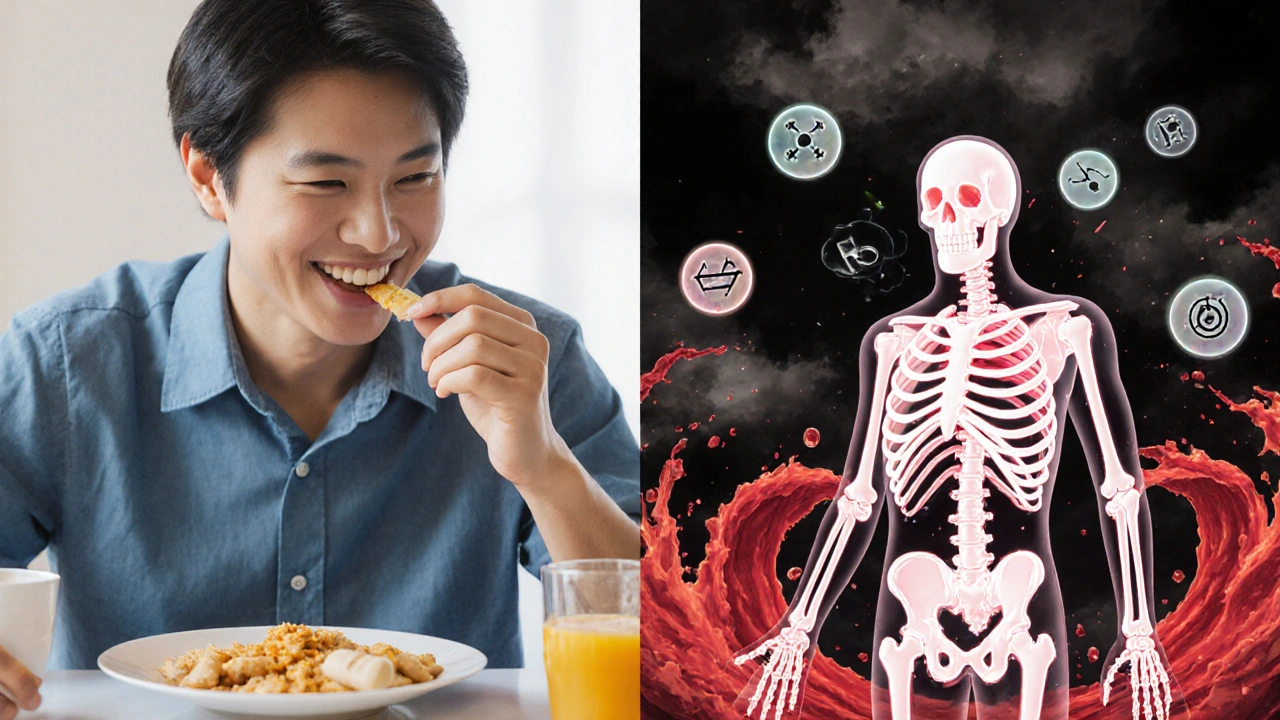
What Should You Do?
If you’re taking any prescription medication, don’t take goldenseal. Period.
Here’s a simple rule: if your medication is on this list, skip it:
- Check if your drug is metabolized by CYP3A4, CYP2D6, CYP2C9, CYP1A2, or CYP2E1.
- Use the American Society of Health-System Pharmacists’ free online CYP interaction checker. It lists 147 medications with known or possible goldenseal interactions.
- If you’re unsure, ask your pharmacist. They see this daily.
If you’ve already taken goldenseal while on meds, stop immediately. Don’t wait for symptoms. The effects can last 7-14 days after you quit taking it. That’s a full two-week window where your liver is still struggling to process your prescriptions.
There’s no safe way to “time it right.” Even short-term use (3-5 days) for a cold can be risky if you’re on daily meds. The few positive reviews you see on Amazon? Almost all say, “Only used when not on any prescription meds.” That’s the only safe scenario.
The Bigger Picture
The supplement industry is booming. Goldenseal sales hit $18.7 million in the U.S. in 2022. But adverse event reports to the FDA have jumped 37% since 2018. That’s not coincidence. More people are using it. More people are getting hurt.
The FDA has warned 12 companies for making false claims about goldenseal curing infections. The European Medicines Agency has banned it from medicinal products. The U.S. still allows it as a supplement-because of outdated laws, not because it’s safe.
Right now, the NIH is running a $2.3 million clinical trial to study goldenseal’s interactions with 10 common drugs. Results won’t be out until late 2025. But we already know enough to say: don’t risk it.
There are safer ways to support your immune system. Sleep. Hydration. Stress management. Vitamin D. These don’t mess with your liver enzymes. They don’t cause fainting spells or uncontrolled diabetes. They don’t turn your meds into toxins.
Goldenseal isn’t worth the gamble. Not when the stakes are your liver, your blood pressure, your kidneys, or even your life.



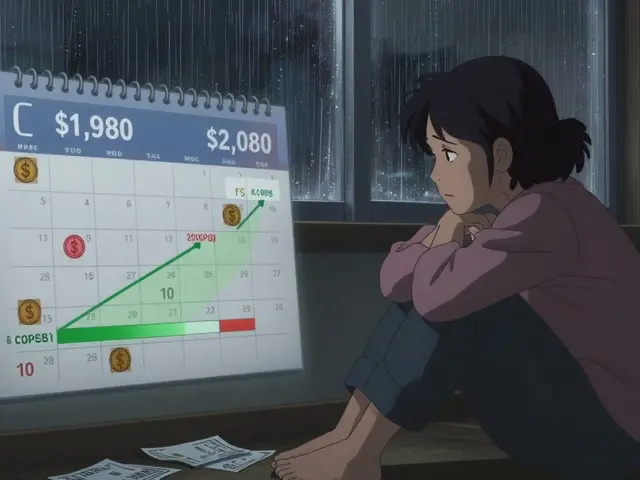
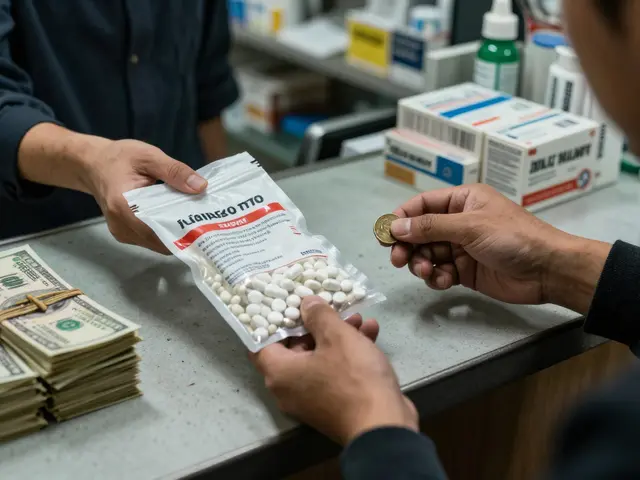
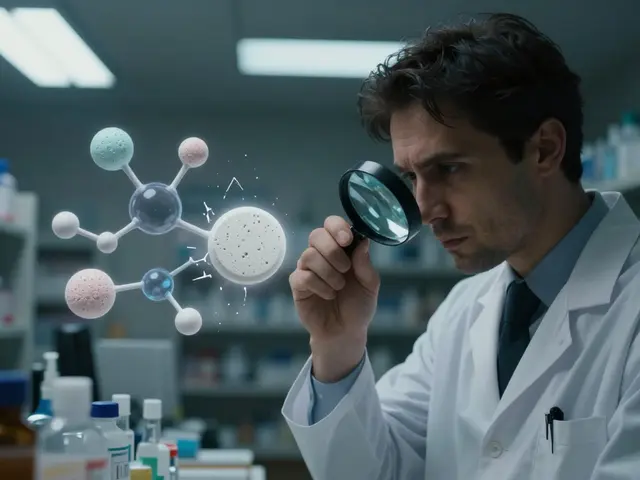
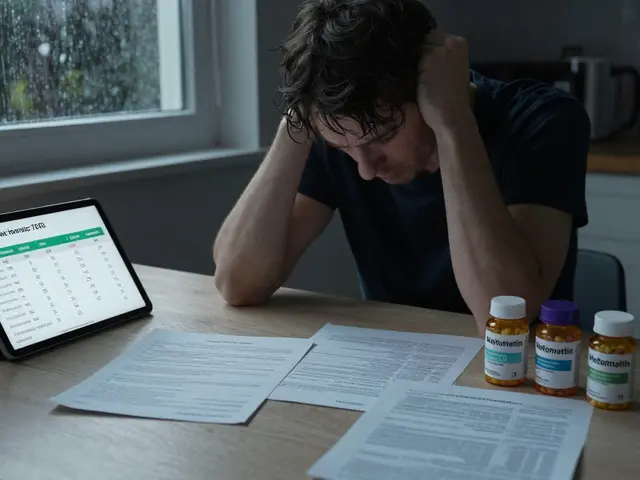
9 Comments